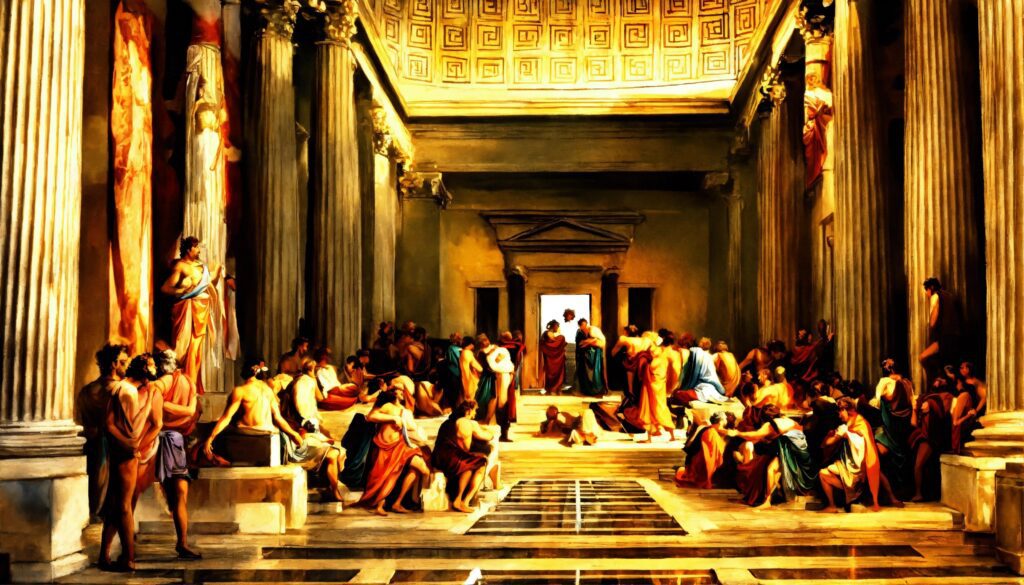Pre-Socratic philosopher: Heraclitus
Panta rhei: Everything runs in the world
On the other hand, Heraclitus, who said, “Everything runs – Panta rhei”,” is at the opposite end of the philosophy of Elia Parmenides, who insisted on real invariants. Heraclitus said, “The fight is the father of all things, and the fight is justice.”
He denied the perpetual and immutable things that philosophers had been pursuing until then, and he saw the world as a dialectic process of total unity. He described the world as a living fire forever, a properly burned and properly extinguished fire.
Fire is the material expression that best conforms to his two core principles. One is that everything comes from arguments, and everything is in a constant stream.
Heraclitus gives an insight that all states that do not exist now, are hidden together in the opposite state that exists, and are never there. Death is already waiting for me to be alive. The night is waiting for the day. Old age and death are waiting behind the youth.
The cradle is just another part of the tomb. As such, the law of Logos states that all dominant states, whether short or long, must be transformed into a potential reverse after a certain period.
But we have a problem staying in our preferred state over time, regardless of how much time goes by. I don’t like to get old. To hate to get old is to hate to die. But you can’t avoid death just because you don’t want to die.
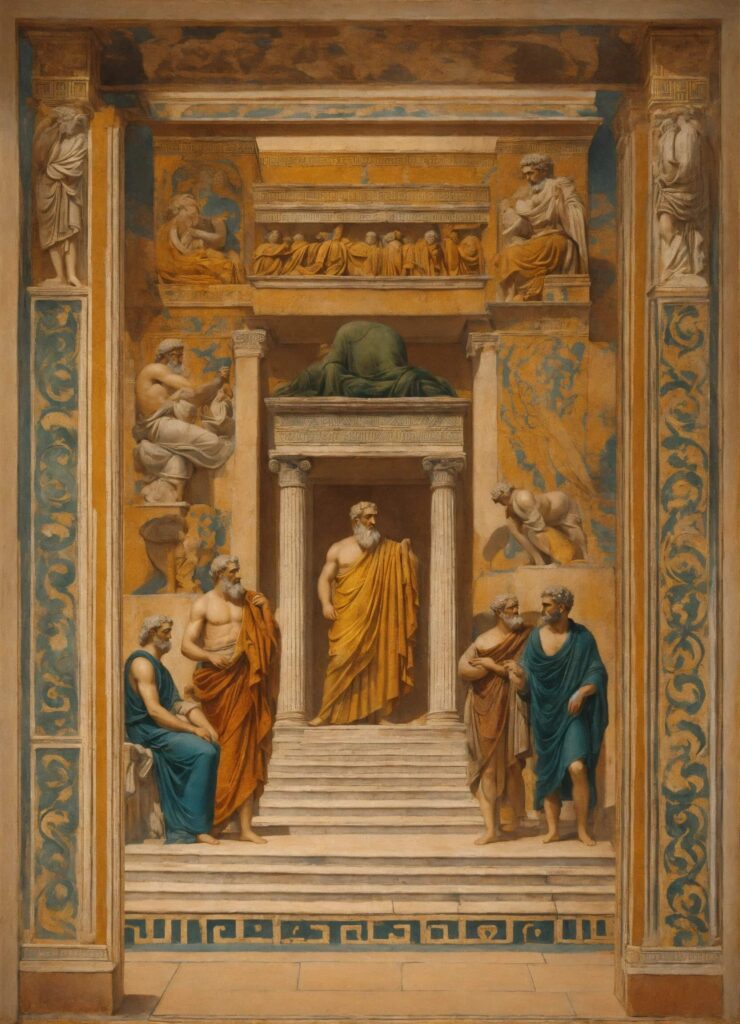
Pan To Thnēton-Everything that dies
The difficulty is that humans become slaves of pain, misery, accidents, or death. As humans get used to all kinds of ideas, they get away from the annoying sensitivity of having to endure pain.
-Jean-Jacques Rousseau
Plato was a philosopher who laid the greatest foundations in the history of Western thought. Whitehead said,
“If we most certainly generalize the philosophical tradition of Europe, it consists of footnotes about Plato.”
Plato is the essence of Western philosophy. The death of Socrates, the teacher, was a big shock to Plato. Socrates’ aloof attitude to death was never indicative of a lack of a sense of reality.
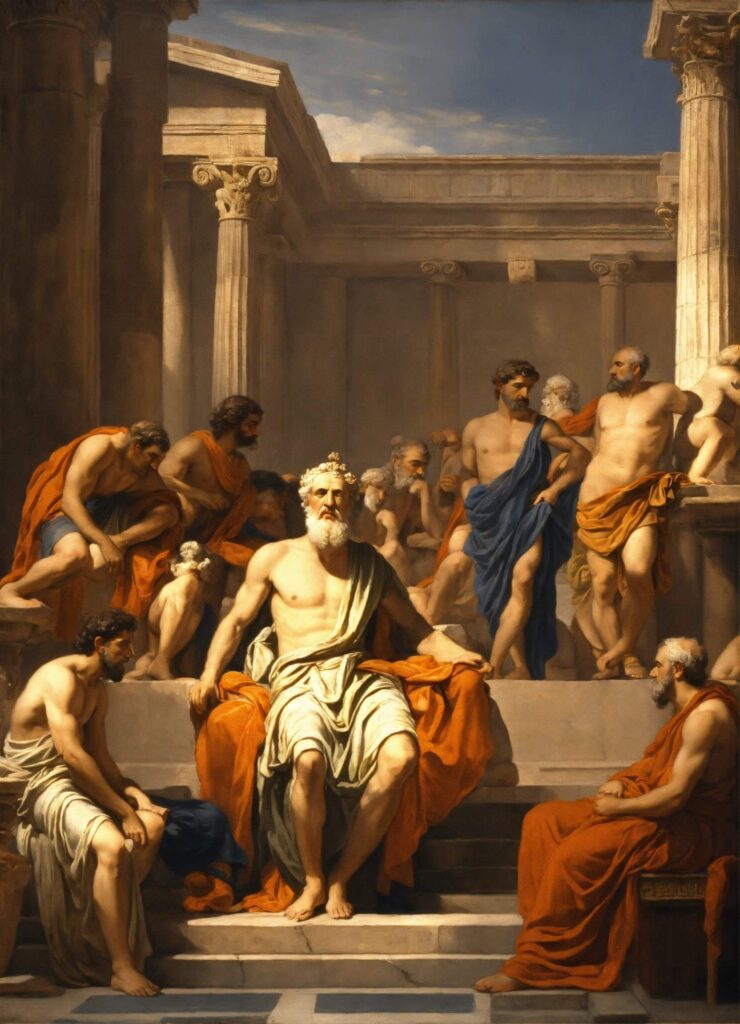
The philosophy is a “Practice of Death”
The appeal for a frenzied death rather calls for a thorough re-awareness of reality. The philosophy of the “Practice of Death” has nothing to do with the escapist and afterlife-oriented idealism that, in any sense, you can only achieve philosophical wisdom when you leave the philosophical reality of ephemerality.
If we see man as he is or think about what will happen to him in his old age, the declining notion of nature will eliminate all our joy. You can’t feel the joy of seeing a human heading out to the grave, and the appearance of death makes everything ugly. -Jean-Jacques Rousseau
It appears to be a powerful immortal god who does not die in this kind of human helplessness. Humans must repeatedly reflect on the difference between the existence of immortality and the existence of death. Distancing makes humans reflect.
In this sense, the word “Know Yourself” in the Apollon Temple of Delphi means that the extinct being has a gap between the existence of immortality.
The world is an inn and death is the end of the journey.
It is only when we reflect on this that we can talk about human life. The fact that we have limitations in the power to mobilize reveals that we are helpless, we have no choice but to die.
Anyone alive must die.
No one can boast about happiness.
Accept what happens with a peaceful mind. There’s nothing I can do about it.
Don’t be so happy or sad.
Go like that like a pilgrim heading to the destination. The world is an inn and death is the end of the journey.
-John Dryden-
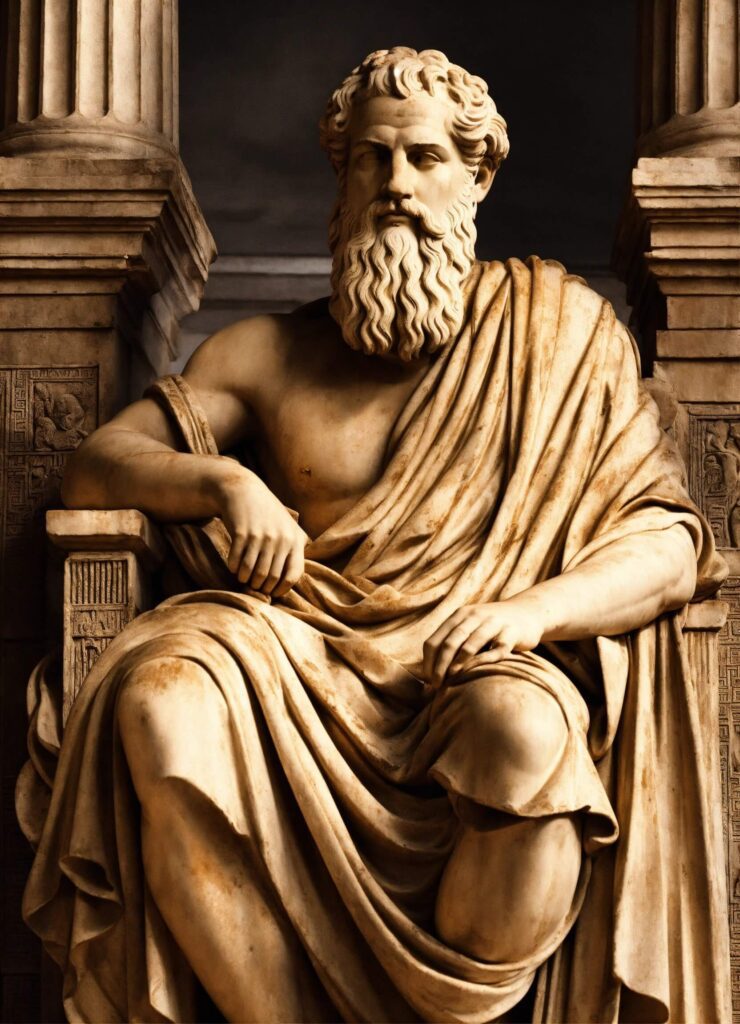
The Sōma, which is the body that animals, plants, or humans have, dies. So the word “ta thnēta-to die,” which eventually means “a finite man who has no choice but to die,” is often seen in Plato’s conversation.
Plato thought that when we experience catharsis in the Utopia of the soul that has left the body, we come to the surprising conclusion that the soul must train the death that comes out of the body. In short, “Philosophy is the training of death.”
Logos
The Gospel of John has a Jewish background and a Greek background. The Gospel of John is a book that reinterprets the gospel with a Jewish background from a Hella perspective and declares the gospel of Christ to intellectuals with a Hella thinking structure.
Verses 1:1 to 18, the initials of the Gospel of John, are intended to use the concept of Logos to give the readers of Hella the orientation to the future Gospel of John. The event of Jesus Christ, described in Chapters 2 to 20, is to help you understand that the eternal God Logos is an event in which the holy body has achieved the revelation and salvation of God.
The Logos of the Gospel of John seems to speak only of the ideas of Hellas, but it is an Old Testament and Jewish concept. In other words, it represents God’s words and God’s wisdom ideas seen in the Old Testament. In the Old Testament, God’s words are a means of creation, revelation, and salvation. In the wisdom document (Proverb 8), God created the world with his wisdom.
Therefore, this world has God’s wisdom. Jewish theology personifies the words and wisdom of God by realizing them. In Jewish theology before and after the New Testament, Binitarianism gradually developed to represent the immanence of the transcendent.
This theism expresses the inherent nature of God in the first month by mobilizing the concepts of God’s words and wisdom in the Old Testament and Jewish theology and sets the words of God and his son or the wisdom of God and his daughter. God’s words and wisdom do God’s work as God’s agent.
Heraclitus is familiar with Christians because he used “logos” for the first time in 1 John. The concept of logos by Heraclitus is strange and difficult. This logo is permanently true, and everything happens accordingly. It is in common with everything, so people must follow this common thing.
It’s consistent with the mind, intention, and thought (gnome), which Heracetos says is that everything is uniformly controlled by Logos. According to him, we breathe in the sacred Logos by breathing. The Logos that he talks about are the divine minds that control the universe, that match our minds, that are material things, that are just like the fire of the universe.
Logos are fire itself. Any being with a rule that doesn’t move while moving can exist, and its existence is given in the fire that dominates the whole, so it’s in constant harmony. Harmony is the power to unify parts and parts to give them integrity. Harmony is, of course, the power of fire. The living eternal fire is the subject of struggle, law, and harmony, but the ultimate subject is God, and the Logos is the wisdom of God.
He denied the perpetual and immutable things that philosophers had been pursuing until then, and he saw the world as a dialectic process of total unity. He described the world as a living fire forever, a properly burned and properly extinguished fire. Fire is the material expression that best conforms to his two core principles.
One is that everything is created from a quarrel, that everything is in a constant flow, and that the change in everything is not in order, it follows balance and order by the logo. The Logos that he talks about are the divine minds that control the universe, that match our minds, that are material things, that are just like the fire of the universe.
The meaning of logos is the hidden order that binds the whole world together, the universal law that dominates all things, and the most real logo is the soul, and the most important property of the soul comes from reason.
According to him, Logos is a universal law of nature and at the same time a law that governs society and human behavior. So the only way for humans to reach moral perfection is to combine their reason with the universal reason of the universe.
Heraclitus gives an insight that all states that do not exist now, are hidden together in the opposite state that exists, and are never there. Death is already waiting for me to be alive. The night is waiting for the day. Old age and death are waiting behind the youth.
According to Logos’ law, every dominant state, whether short or long, must be transformed into a latent opposite state after a certain period. Heracetos rejected Pythagorean ideals of a peaceful and harmonious world, calling them ideals of death.
Heraclitus said, “The fight is the father of all things, and the fight is justice.” Previously, philosophers pursued permanence and immutability, but there was no such thing, and there was no need to hope for a stagnant world, Heraclitus said. I only live by the destruction of anything other than myself.
Plato used Logos to describe the divine power of the world. Aristotle said that there is a divine vitality or Logos in humans that share with God. Logos was a reason in Stoic philosophy in 300 B.C.
The concept of this logo also appears in later Stoic philosophy, in which it broadly means the nature of the universe, it narrowly means human nature and contains the insights of Zenon, the founder of the Stoic philosophy that life is based on human rational nature is fundamentally consistent with the nature of the universe and a disciple of Socrates.
For him and his disciple Cleanthes, the fundamental unity of human life is dependent, non-independent, and non-independent life consistent with nature, Logos, and God. For them, Logos, or reason, was a kind of divine wisdom that ruled all fullness and everything.
Philo, the Jewish philosopher of Alexandria, taught that there was a group of divine power between God and the world, and the best was Logos. Logos emerged from the existence of God, and God created the world through Logos, and it was said to be a way for all other powers to emerge. Logos created an ideal person.
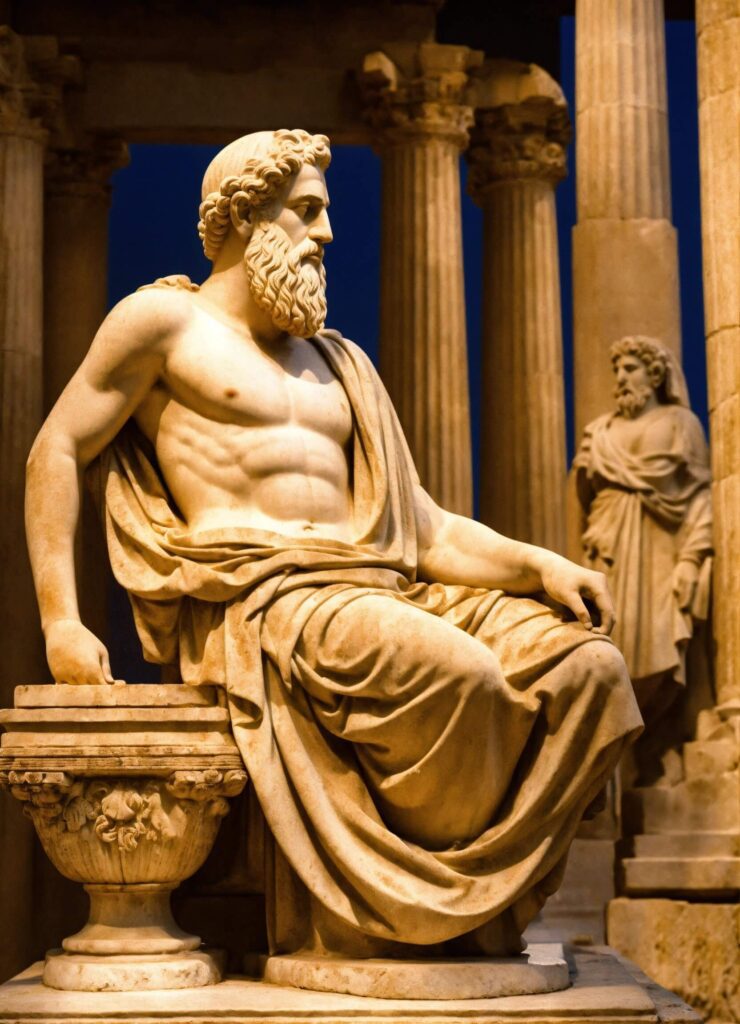
Heraclitus’ Logos
Heraclitus is familiar with Christians because he used “Logos” for the first time in John 1. The concept of logos by Heraclitus is strange and esoteric. This logo is permanently true, and everything happens accordingly. It is in common with everything, so people must follow this common thing.
It’s consistent with the mind, with the intention, with the idea, and Heraclitus says that everything is controlled by Logos all the same. According to him, we breathe in the sacred Logos by breathing. The Logos that he talks about are the divine minds that control the universe, that match our minds, that are material things, that are just like the fire of the universe.
Logos are fire itself. There can be any existence that has a rule that does not change during change, and it is in a certain harmony because its existence is given in the fire that dominates the whole. Harmony is the power to unify parts and parts to give them integrity. Harmony is, of course, the power of fire. The living eternal fire is the subject of struggle, law, and harmony, but the ultimate subject is God, and the Logos is the wisdom of God.
He denied the perpetual and immutable things that philosophers had been pursuing until then, and he saw the world as a dialectic process of total unity. He described the world as a living fire forever, a properly burned and properly extinguished fire. Fire is the material expression that best conforms to his two core principles.
One is that everything is created from a quarrel, that everything is in a constant flow, and that the change in everything is not in order, it follows balance and order by the logo. The Logos that he talks about are the divine minds that control the universe, that match our minds, that are material things, that are just like the fire of the universe.
The meaning of the logo is the hidden order that binds the whole world together, the universal law that dominates all things, and the most real logo is the soul, and the most important property of the soul comes from reason. According to him, Logos is a universal law of nature and at the same time a law that governs society and human behavior. So the only way for humans to reach moral perfection is to combine their reason with the universal reason of the universe.
Heraclitus gives an insight that all states that do not exist now, are hidden together in the opposite state that exists, and are never there. Death is already waiting for me to be alive. The night is waiting for the day. Old age and death are waiting behind the youth.
According to Logos’ law, every dominant state, whether short or long, must be transformed into a latent opposite state after a certain period. Heracetos rejected Pythagorean ideals of a peaceful and harmonious world, calling them ideals of death. Heraclitus said, “The fight is the father of all things, and the fight is justice.
” Previously, philosophers pursued permanence and immutability, but there was no such thing, and there was no need to hope for a stagnant world, Heraclitus said. I only live by the destruction of anything other than myself.
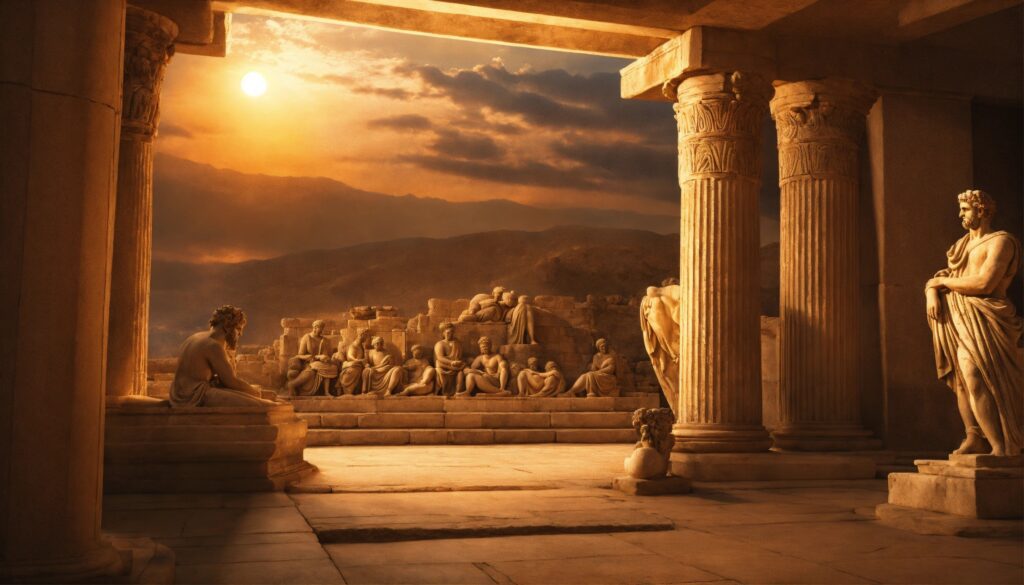
Plato’s Logos
Plato used Logos to describe the divine power of the world. Aristotle said that there is a divine vitality or Logos in humans that share with God. Logos was a reason in Stoic philosophy in 300 B.C.
The concept of this logo also appears in later Stoic philosophy, in which it broadly means the nature of the universe, it narrowly means human nature and contains the insights of Zenon, the founder of the Stoic philosophy that life is based on human rational nature is fundamentally consistent with the nature of the universe and a disciple of Socrates.
For him and his disciple Cleanthes, the fundamental unity of human life is dependent, non-independent, and non-independent life consistent with nature, Logos, and God. For them, Logos, or reason, was a kind of divine wisdom that ruled all fullness and everything.
Philo, the Jewish philosopher of Alexandria, taught that there was a group of divine power between God and the world, and the best was Logos. Logos emerged from the existence of God, and God created the world through Logos, and it was said to be a way for all other powers to emerge. Logos created an ideal person.
